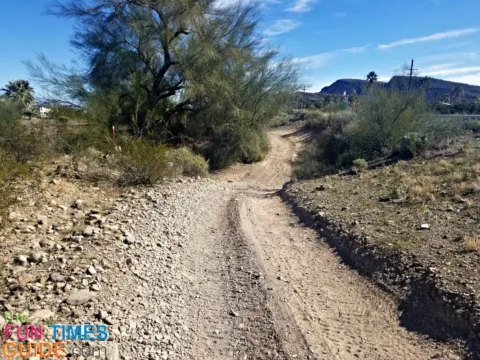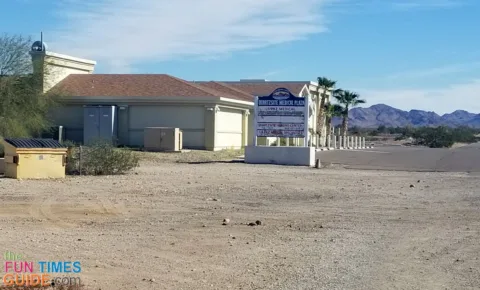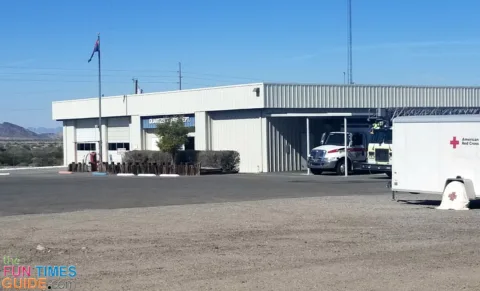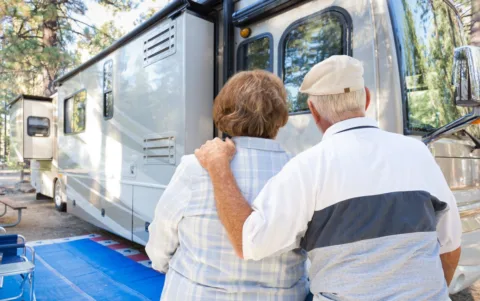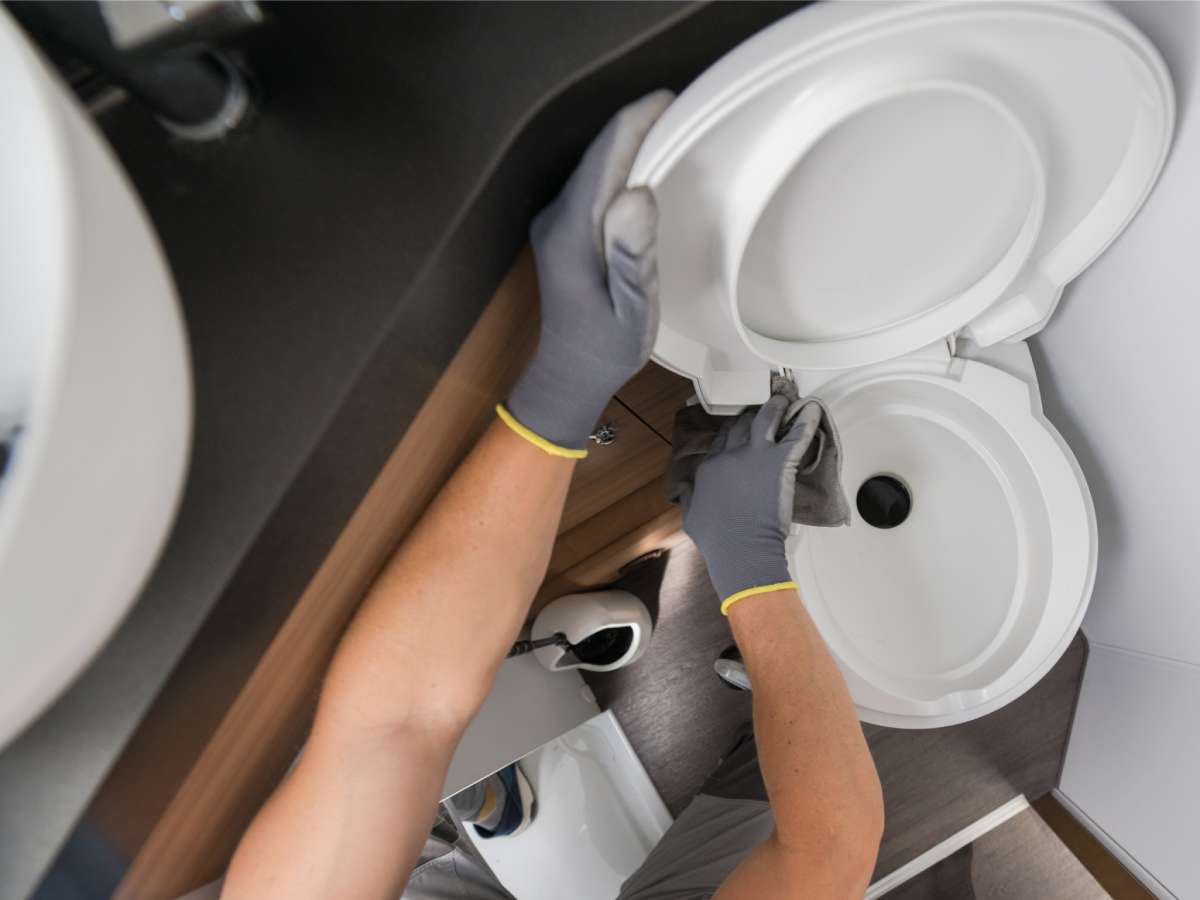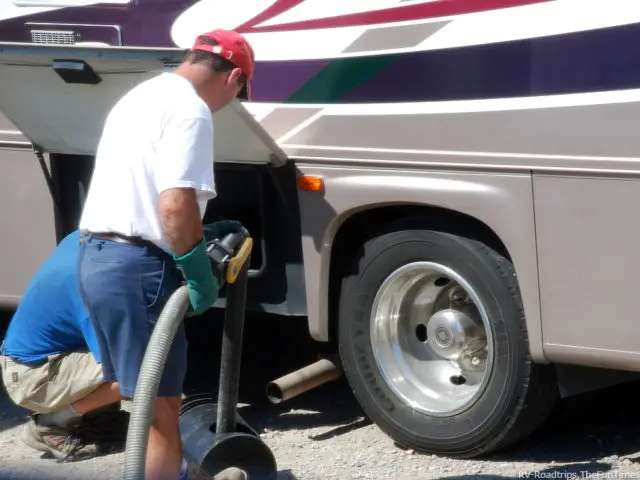Life is good. I’m retired, traveling the country at will, and enjoying full-time RV living to the fullest.
If you’re anything like me, then you probably set aside money for mechanical breakdowns. And your budget easily meets your monthly expenses — as long as everything goes as planned!
Look ahead a few years down the road and one thing is certain…
They say the only 2 things that are a given are taxes and death. Well, I’ve reached the age and low income level that taxes are out of the equation. But I don’t know of anyone who has successfully escaped the inevitability of death — or even worse, extended sickness or accidents.
Are you prepared for what will happen at some point?
Emergency situations usually happen when you least expect it.
A few weeks ago it happened to me.
My Recent Accident
Being in decent health and reasonably good shape, I was out riding my electric bicycle.
A poor choice on my part took me down a small gully — I was expecting to ride up the other side with the help of electrical power. Halfway up the other side, the bicycle and I parted ways. I was thrown backwards off the bike, landing flat on my back with the wind knocked out of me.
At 14 years of age, I would have probably been able to jump right up and continue on. At just shy of 70… not so much.
I was alone and out of sight from any passersby. Once I caught my breath, I assessed the situation. Luckily, I was able to pick myself up and return to my campsite unaided.
But a few hours later, the pain set in — and I was pretty much unable to make the slightest move without extreme sharp pains piercing through my spine. It was time for panic to set in.
Full Time RV Living Lends Itself To Solitude
For the past few years, I have enjoyed full-time RV living in Arizona — either in the desert on BLM land or staying in National Forest areas (sometimes with friends, but often alone).
I’m reminded of something I once read… that in the area of Quartzsite Arizona, 4 to 5 people are found every year deceased in or near their RVs from a variety of causes.
RELATED: A Full-Time RVer’s Point Of View On Quartzsite
There are things worse than death — like lingering in pain unattended and alone!
Life is a gamble. You play the odds as best you can and hope things work out. The older you get however, the less odds are in your favor.
At some point, medical attention will become necessary and your living arrangements will need to be adjusted. The time to take action is not when you find yourself laying on your back on some dusty trail wondering if you will be able to take your next breath.
Do You Have An Exit Strategy In Place?
Every full-time RVer needs to have an exit strategy in place. And you need to act on it prior to the disabling emergency that is most likely awaiting at some point in the future.
The desert southwest is a favored destination for retired RVers — because the cost of living is modest. You can spend most of the year comfortably living on a pretty small income that probably wouldn’t cover rent in most parts of the country.
There is a catch though… medical help is not convenient. In fact, it’s downright far away and very costly. (Especially if an emergency demands that you get to a good hospital quickly!)
How will you get to medical care in an emergency? Will you be able to afford it?
Should you need a medical helicopter evacuation, you can expect an almost unbelievable bill for the services.
You can purchase medical transportation insurance that will take that worry out of your financial budget — but it doesn’t come cheap.
Most insurances, Medicare, and VA health care will leave you owing much (if not most) of the charge.
For example:
- Medicare only pays 80% of most charges — unless you have supplemental insurance.
- VA health care only pays 80% if you have an emergency taking you to an out-of-the-VA hospital system.
In this day and age, owing 20% is very likely going to bankrupt the majority of those trying to economically live in comfortable climates.
My Full-Time RV Exit Plan
As a disabled veteran, I depend on the VA health system totally for my medical needs. The nearest VA hospital to where I am staying is 125 miles away.
After my accident, a helicopter ride was completely out of the question financially. So I spent 2 hours riding in a ¾-ton pickup truck of a friend who (thankfully!) was willing to spend the whole day taking me to the nearest VA hospital for x-rays.
I had no idea how badly my back was injured, but the pain was intense throughout the long ride while I was waiting to find out.
This little disaster has me coming up with some new strategies for my future full-time RV living plans. And I think that’s something every full-time RVer should probably do — sooner rather than later.
For the past year, I’ve been giving serious thought to how I should adjust my lifestyle to match my declining years and increased need for close-by medical services.
I recently made the decision to move into one of the numerous lower-cost RV parks in the region. Living in a community gives you neighbors — which is a huge asset when it comes to emergencies.
Health concerns are a common thread around here, so everyone pitches in and watches out for those around them. Especially when we see the medical helicopter land at the helipad next to the RV park an average of twice a week!
I no longer fear that my small dog, Max, will be left unattended — or that my RV and possessions will be unsafe. I have people around me that will cover my back when needed. (Oh, and I was very fortunate to make this move only a matter of weeks before I had my cycling accident.)
I was extremely lucky. No broken bones — just severe impact bruising and general misalignment of my spine. I am recovering nicely and, hopefully, the last of the pain will disappear in time.
But this isn’t the end of the story…
How Prepared Are You? What’s Your RV Exit Strategy?
What happens next time? Am I ready for the next medical situation that could be more life-changing?
Medicare is wonderful — especially if you can afford the more costly additional insurances that will provide good access to top-level medical help almost anywhere in the country.
I have basic Medicare Part A and the supplemental Medicare Part B. But I primarily rely on the Veterans Health Administration medical system for my needs. That limits me to my own primary care facility and corresponding VA hospital.
To address the long distance I must travel for health care, I plan to move to a different part of the country where I will be much closer to a more comprehensive VA medical center. Because, as I mentioned above, it’s not a matter of if… but when your next emergency will arise.
This new location is also convenient to comfortable subsidized senior housing — for when the day comes that it becomes impractical for me to enjoy full-time RV living any longer.
The Bottom Line
As a senior full-time RVer, emergencies don’t have to be worrisome thoughts that occupy your life — if you make your plans well ahead of time.
Take proactive actions that will place you in the best possible position to be both physically and financially comfortable in the future.
Some concessions may be needed in order for you to be ready for the transition. But isn’t it better to have a workable exit plan in place than to struggle through a life-changing emergency? After all, it’s just a matter of time.
Here’s my brief video about the Life Flight helicopter services in Brenda, Arizona:
Like this post? Save it to read again later… or share with others on Pinterest!

